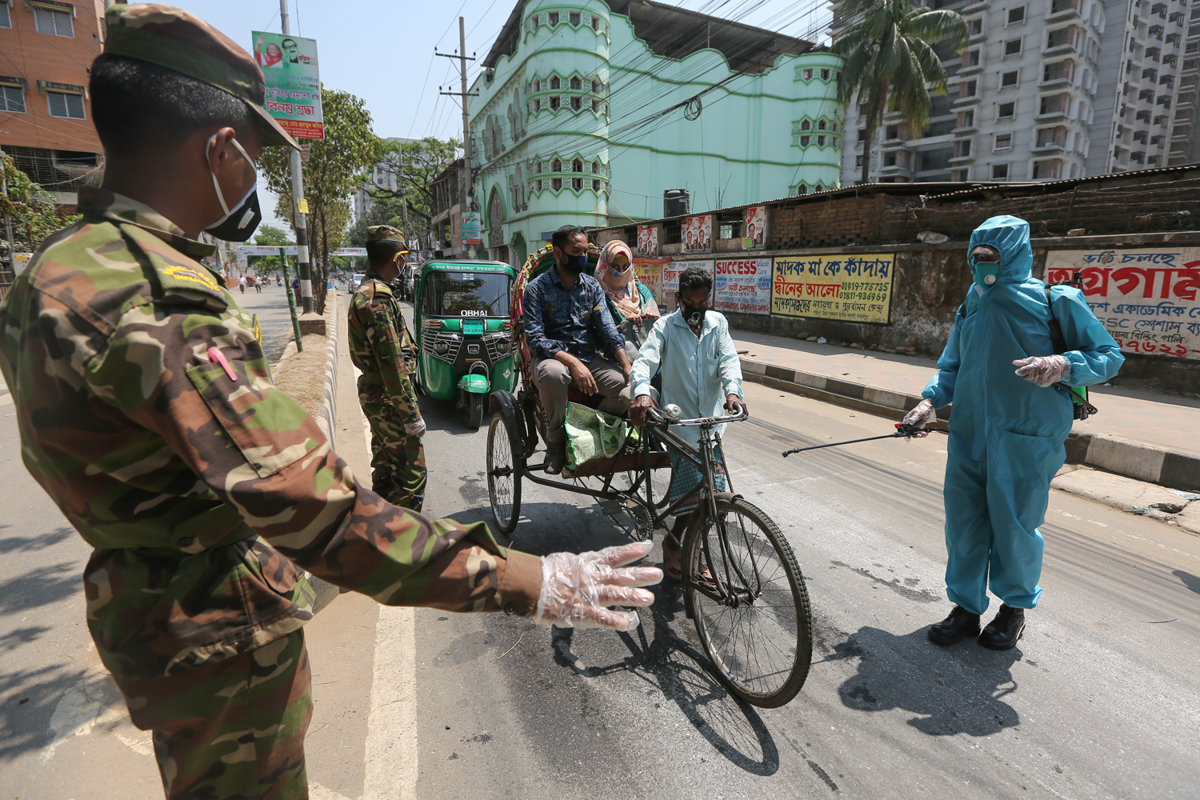GET IN TOUCH
- Please wait...

We’re entering another round of Covid induced lockdowns from 14th April, as the country has been witnessing another surge in infection rates. As of today (April 13, 2021), 6,028 individuals have been newly infected with Covid with 69 deaths; an eleven-fold increase in new infection numbers compared to a month back. But the question is, are we heading towards a full-blown human catastrophe, akin to the ‘second wave’ of the Spanish flu, witnessed a hundred years back?
The year 2021 had started off positively, as macroeconomic indicators had been recovering, augured by falling Covid infection rates. The recovery had been led by rebounding domestic demand and rising apparel exports, as major apparel buying European and North American countries had gradually eased their lockdowns from late 2020. The World Bank Group (WBG), in its latest country specific macroeconomic update, had pinpointed potential opportunities for recovery in 2021 and beyond. According to the multilateral agency’s estimates, Bangladesh would be growing at 3.6% rate in FY 2020-21, an upward revision from 1.6% growth estimated in late 2020. According to the WBG projections, achieving the growth estimates would be contingent on successfully tackling the Covid pandemic by inoculating a significant part of the population, among other factors.
As the Covid infection rate is expected to keep surging in April, what would be the likely impact on the different sectors? How will the primary and secondary sector respond to possible supply chain and production disruptions? How will the informal and service sector react to prolonged slowdown in economic activities?
The last bout of ‘general holidays’ in March-May 2020, had resulted in catastrophic disruptions in agriculture supply chain, leading to loss of income for farmers, especially those dealing with perishable items like milk and vegetables. Prices of agro-inputs had also risen owing to disrupted supplies and dwindling stocks among agro-input retailers.
This time around, supply chain disruption will unlikely contribute to severe demand-supply mismatch; however, a selective lockdown will possibly send a signal to the market, resulting in lower than normal prices due to panic sales at the farm gate level and higher prices at the end consumer level.
Production across the manufacturing sector is unlikely to grind to a halt, as the government had taken into consideration the negative repercussions of not meeting delivery targets. Therefore, RMG factories are expected to keep operating till the orders last. However, with rising Covid infection rates across Europe, a number of EU based economies like Germany and France have been undergoing lockdowns, which can potentially reduce sales of international apparel brands. The knock-on-effect of closing down of economies across Europe and North America might result in another round of order delays or cancellation. Prolonging of a lockdown due to surging covid infection rates will lead to declining domestic demand, particularly for non-essential goods like consumer durables.
The service sector might experience another blow as it looks to re-emerge from the quagmire wrought about by the pandemic. Hospitality sector would be the earliest casualty, as travel restrictions will likely result in declining demand for entertainment and travel. Restaurants are also expected to experience a steep fall in revenue from dine-in sales, and increasingly having their margins squeezed by Foodtech service providers like Foodpanda and Shohoz. The banking sector will likely have to seek additional support from the regulators in staving off the fresh batches of loan defaulting clients.
Tackling another round of lockdowns might be back breaking for the informal sector, particularly for the workers. Since majority of the workers are engaged in contractual jobs with little or no job security, a slowdown in economic activities might lead to job losses and a mass exodus of these workers from urban centers. The last round of ‘general holidays’ had led to them depleting their savings, and this time around, many might struggle to make ends meet. The informal sector would be praying for a much shorter lockdown compared to the previous year.
Majority of the traditional businesses catering to the domestic market end up earning a large chunk of their annual revenue during religious and cultural festivals. A spike in covid infections will likely result in depleting sales during the Bengali New Year and before Eid-ul-fitr. The SMEs will be hoping for a quick reversal in their fortune.
E-commerce companies like Chaldal have had a stellar 2020 with surging online orders and large scale client conversions. Foodtechs have also benefitted from rising orders and have taken the opportunity to diversify into grocery delivery. Another lockdown might prove to be a boon for these emerging tech giants.
We had expected a smooth transition to the post-covid days, especially after the deployment of the Covid-19 vaccine. However, new virus strains have been proving to be a potent force at spreading the disease, amplified further by the general indifference toward Covid related health safety guidelines.
The possibility of extending the lockdown beyond one week, would be dependent on the effectiveness of these restrictive measures in stemming the spread of the infection. However, prolonging the shutdown beyond two weeks might result in widespread disaffection among majority of the population.
Our experts can help you solve your unique challenges
Stay up-to-date with our Thought Leadership and Insights